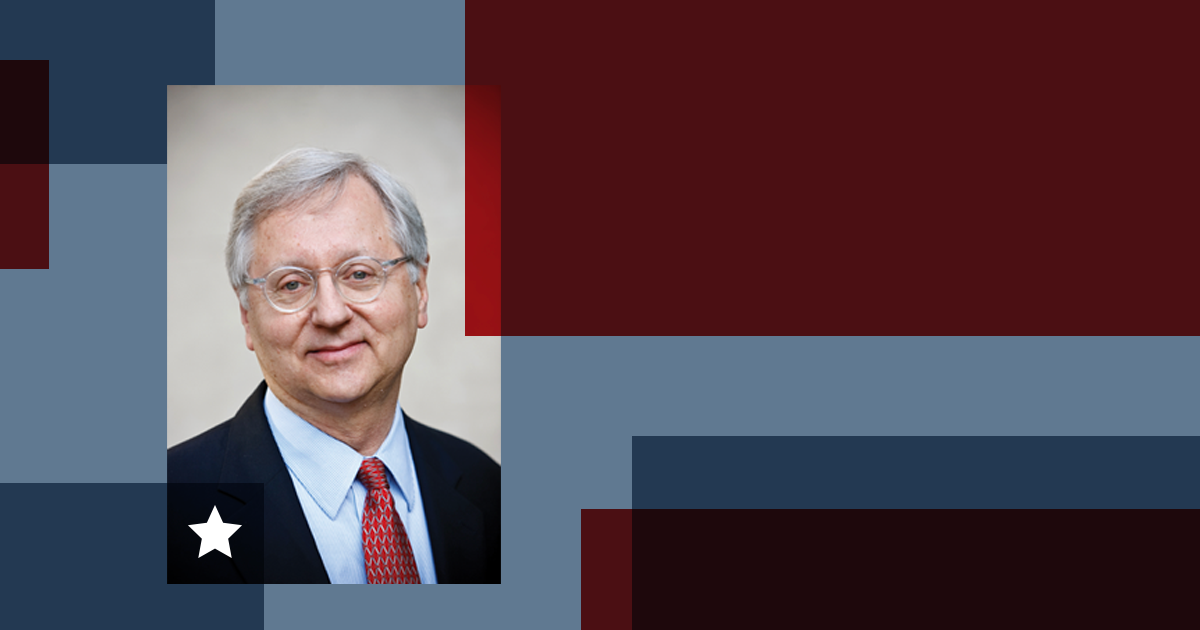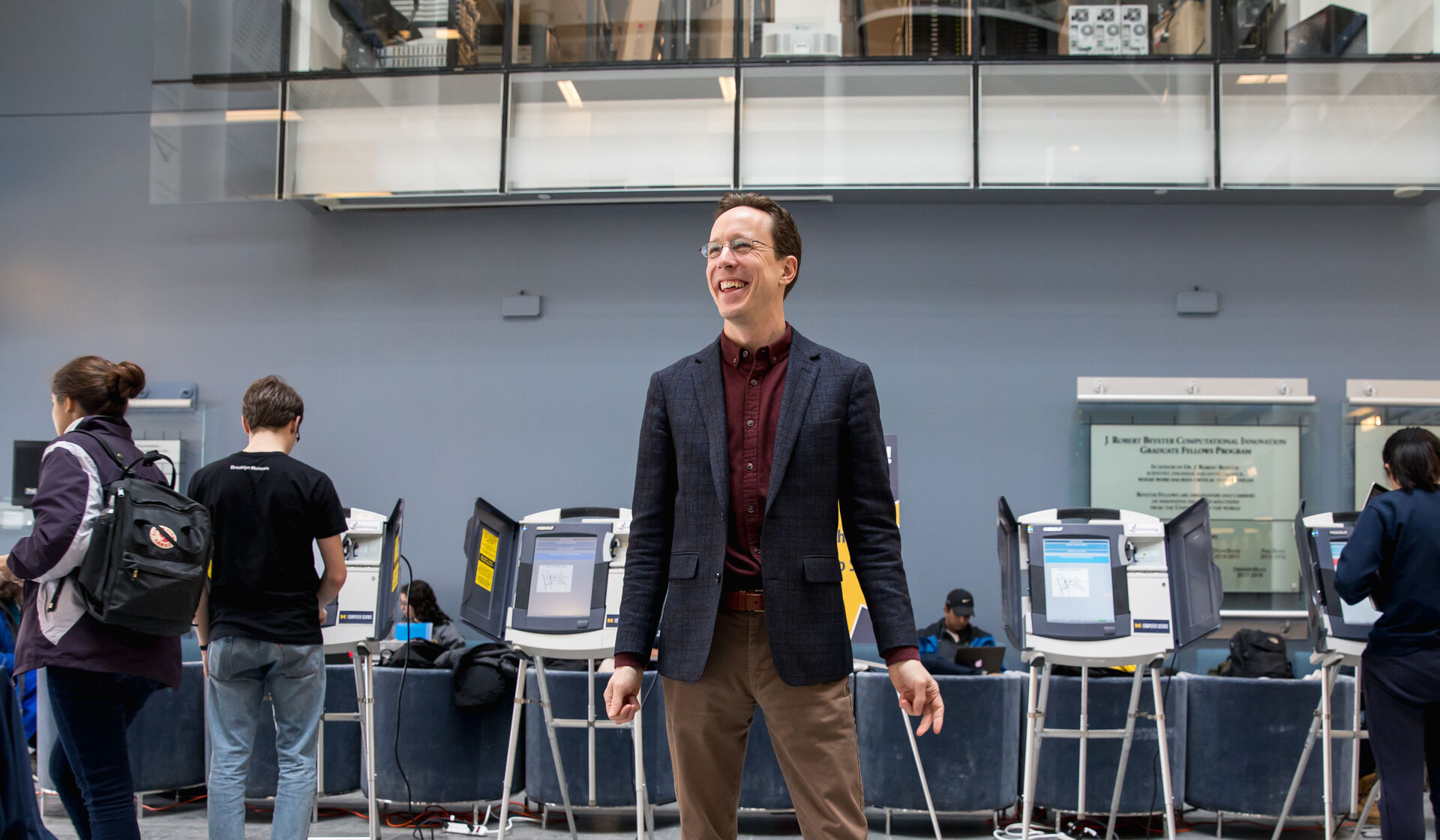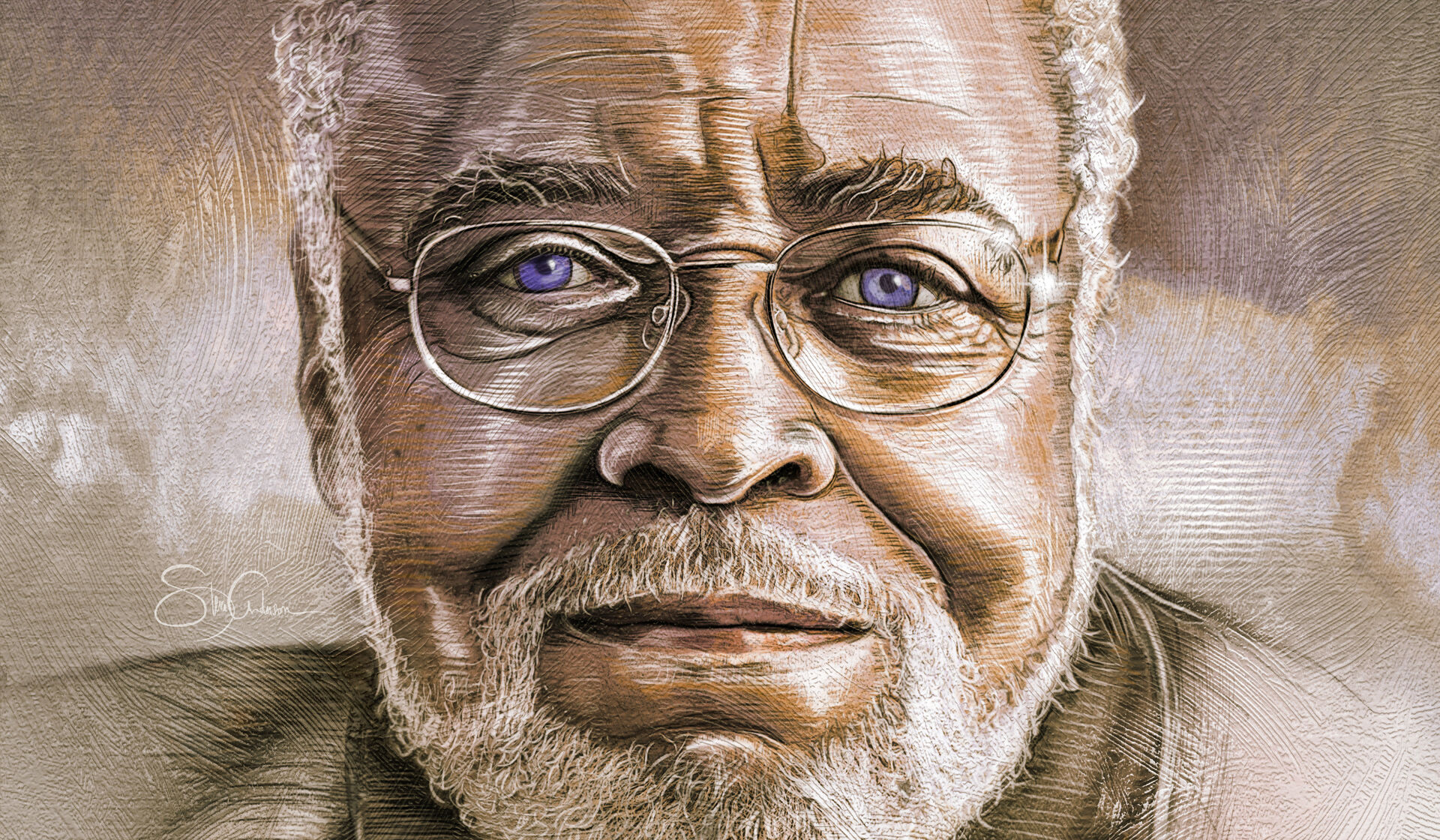It was grueling—eight hours of deposition testimony for a U.S. Supreme Court case that would determine the constitutionality of campaign finance reform. But political scientist Thomas Mann, MA’68, PhD’77, stood his ground against a lawyer who was unable to refute his expert testimony. Ultimately, in deciding McConnell v. FEC in 2003, the court upheld most of the Bipartisan Campaign Reform Act (aka McCain-Feingold), citing Mann’s affidavit several times in the majority opinion.
His role defending McCain-Feingold offers a glimpse into Mann’s choices and triumphs over a distinguished career: He chose to study political science over law in 1966 when the late professor Warren Miller recruited him to U-M. He straddles academe and public affairs. And he presents scholarly, nonpartisan research that holds up under scrutiny.
Half a century since launching his career in Washington, Mann has landed remarkably unscathed in Berkeley, California. It’s a gentle breeze compared with the whirlwind he left behind in the nation’s capital in order to be closer to his children and grandchildren in the Bay Area.
As a resident scholar at the University of California, Berkeley’s Institute of Governmental Studies, Mann teaches seminars such as “America’s Dysfunctional Politics,” attends weekly research workshops, and writes and speaks to different audiences.
“I’m a free spirit now,” he quips, peering through classic professorial frames from a modest office at the base of the Campanile clock tower.
But while geographically removed, Mann is still focused on the ways of Washington. Last year, along with fellow political analysts E.J. Dionne and Norman Ornstein, MA’68, PhD’72, he co-authored “One Nation After Trump: A Guide for the Perplexed, the Disillusioned, the Desperate, and the Not-Yet Deported.”
“These midterm elections,” Mann says, “are the most important in our lifetimes.”
Mann cut his teeth on Washington politics when he and U-M classmate Ornstein earned congressional fellowships in 1969. (For more about Ornstein, see “Political Junkie” in the fall 2016 issue of Michigan Alumnus.) When the fellowship concluded, Mann took a job at the American Political Science Association (APSA), which ran the fellowship program.
While working at APSA, he developed polls for congressional candidates on the side, then took a five-month leave to write his dissertation based on the polling research. In 1978, he turned that into his first book, “Unsafe at Any Margin: Interpreting Congressional Elections.”
Mann stayed in Washington until 2015, running the fellowship program, APSA, and the Governance Program at the nonpartisan Brookings Institute (where he continues to serve as a senior fellow). He also taught part time at a slew of prestigious universities; testified before Congress; wrote amicus briefs for the U.S. Supreme Court; and engaged in a wide range of reform projects to improve the American political system.
During that time, Ornstein and Mann teamed up on many books, articles, and projects. They gained the most renown with the 2012 publication of their bestselling “It’s Even Worse Than It Looks: How the American Constitutional System Collided with the New Politics of Extremism.”
Mann easily recites the most quoted sentence, which calls out Republicans for their extreme methods. That sentence made many people in nonprofits, think tanks, and the news media very uncomfortable, Mann says. “We argued that their trying to treat the parties as balanced and equal was doing a disservice to the public.”
Mann and Ornstein’s reputations as nonpartisan, middle-of-the-road analysts are what gave their critique such credibility, according to Dionne, a Washington Post columnist and, like Mann, a Brookings fellow. “It put them at odds with the sort of journalism based on the ideas that ‘both sides do it’ and ‘both sides are equally at fault.’”
A 2016 revision of the book updated the title to “It’s Even Worse Than It Looks Was” and underscored that, by every objective measure, gridlock and polarization had clearly worsened.
“We’re at an unprecedented point in our history,” Mann laments. “Right now, the tribalism is so strong that the two parties only come together on matters that aren’t controversial or highly visible.”
As a longtime political analyst, Mann is exasperated by the hyper-partisanship, in large part because, he says, “there’s little or no interest in truth and evidence.” Still, his fascination with politics, elections, and democracy hasn’t waned.
“Tom’s a giant on the American political scene,” Ornstein says. “His hallmark is that he’s a scholar first, grounded in facts and data, but with a deep moral core and passion for fundamental values of social justice and fair play. None of that has changed even as our society and politics have been transformed in deeply troubling ways.”
Mann cautions: “It’s a fearful time for our democracy and such a disappointment in the way that our institutions are running right now, but boy is there a need to understand it and figure out how to counter it.”
Based in the San Francisco Bay Area, Steven Cohen is an award-winning communications professional and writer. He profiled political scientist Ken Goldstein, MA’93, PhD’96, for the Alumni Association newsletter in October 2016.





